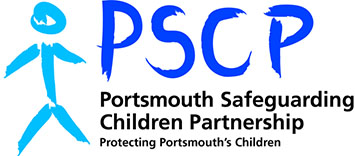Substance misuse
Substance use among young people can affect their physical, emotional, social, intellectual and developmental needs, however the notion of ‘problematic’ drug or alcohol use is different for young people than adults. This is partly because they are younger – what might seem to be ‘normal’ adolescent experimentation in a 17 year old could be grounds for intervention in a 12 year old. Therefore each young person must be considered individually taking into account developmental stages/age/ understanding/patterns of use and safeguarding concerns.
Some indicators are as follows; but don’t jump to conclusions, some of them listed are ‘typical teenage behaviour’ but a number of factors together may be an indication of substance use:
- Late for school/college/work, grades dropping, truancy
- Mood swings, aggression, apathetic
- Conflict with parents/authority figures when there was none before
- Loss of appetite, weight loss, binge eating, eating at odd times
- Unusual irritability or aggression
- A tendency to become confused
- Abnormal fluctuations in concentration and energy
- A deterioration in relationships peers/ teachers etc.
- Dishonesty and theft (arising from the need to maintain an expensive habit)
- New friends and/or older friends they seem reluctant for parents/carers to meet
- Missing from home, particularly overnight
- Sleeping long periods of time
- Slurred speech and/or behaviour similar to someone when drunk
- Excessive sweating
- Evidence of lies
- Borrowing more money or stealing from family/friends
- Increase in anxiety or paranoia
It is not always known what chemicals are present in new psychoactive substances, also known as legal highs. The only way to stay completely safe is not to use substances. If a young person you know becomes unwell as a result of something they have taken, you should seek medical advice as soon as possible. The first priority of the emergency services will be to make sure the young person is safe.
You can also find help via DASS (Drug and Alcohol Support Service) which is a confidential service for young people up to 19yrs who are seeking support to reduce or stop their use of substances. Referrals can be made from any parent/carer or professional or the young person can refer themselves. Contact can be made either via email: DASS@portsmouthcc.gov.uk or by texting or calling: 07951 497898 or 07557 753131.
Helpful Sites
LOCAL
Rebound Group – based at the carers centre, Southsea. offering support and assistance in both group and one-to-one counselling settings. 07939 580167.
Parents Support Link – supporting and informing the families and friends of people who use drugs and alcohol. 023 8039 9764
Early Help – parents leaflet – Early Help & Prevention Teams
NATIONAL
Talk to Frank – helpline for anyone concerned about drug or solvent misuse. Advice and information for drug misusers, their families, friends, carers.
Addaction – a UK wide treatment agency, helping individuals, families and communities to manage the effects of drug and alcohol misuse.
ADFAM – has local groups for families affected by drugs and alcohol and a range of information
Re-solv – helpline: 01785 810762 Helpline providing information and support for people concerned about solvent or volatile substance abuse problems.
UKNA – UK Narcotics Anonymous : 0300 999 1212, helpline and regular self-help meetings for addicts who have a desire to stop using and who wish to support each other in remaining drug free.
AL-AnonUK – Al-Anon Family Groups offers support and understanding to the families and friends of problem drinkers, whether they’re still drinking or not. Alateen is part of Al-Anon and can be attended by 12- to 17-year-olds who are affected by another person’s drinking, usually a parent.
